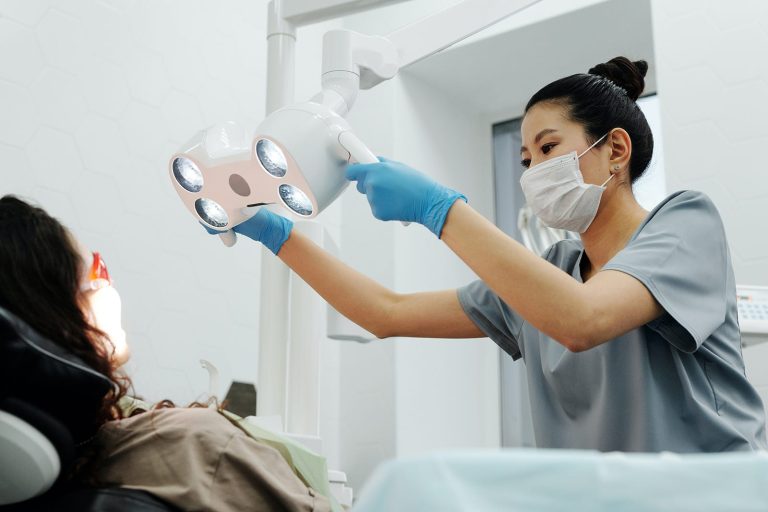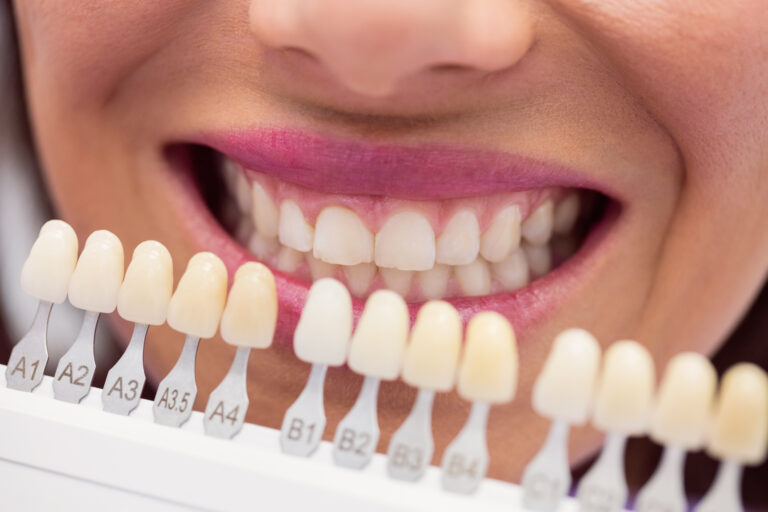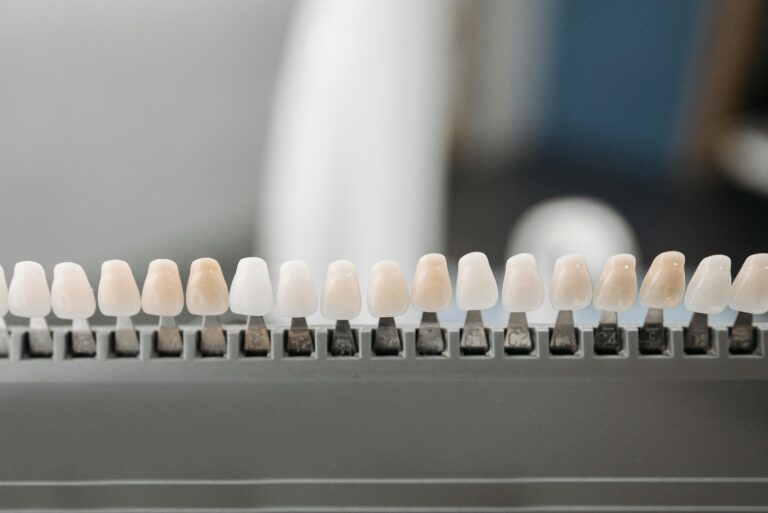Braces can cause discomfort and even tears. But why do they hurt so much? It’s because of how teeth are straightened. Brace wires move teeth into place, which can lead to soreness.
The pain comes from the constant pressure on the teeth. As the wires adjust teeth, it’s normal for them to ache. This discomfort may last a few days until teeth adjust to their new positions. Brackets and wires can irritate mouth tissues, making pain worse.
To reduce pain, there are a few suggestions. First, brush and floss often to prevent more discomfort. Salt water rinses can also reduce inflammation.
Eat soft foods instead of hard or chewy foods. Cold foods like ice cream or popsicles can numb the area. If you’re still in agony, ibuprofen may help. Always ask your orthodontist before taking medicine.
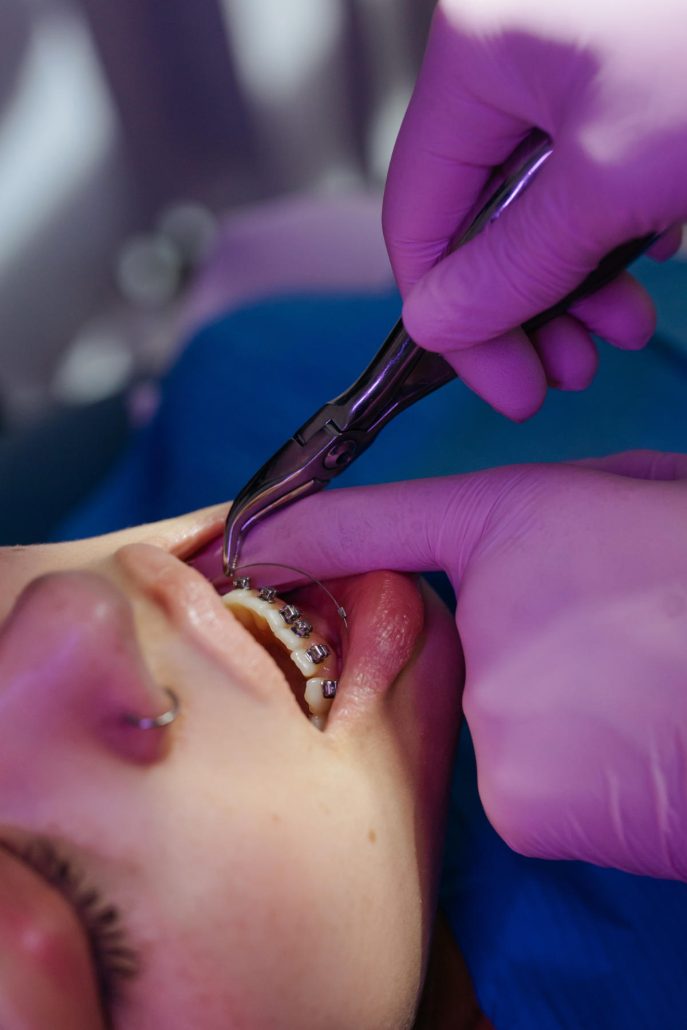
Understanding why braces can cause discomfort
Braces can cause discomfort – even tears! The reason lies in the nature of braces. They are designed to adjust your teeth, which puts pressure on your teeth and jaw. This pressure causes pain.
After the braces are first put on, you may feel discomfort as your mouth adjusts. This usually goes away within days or weeks. However, during treatment, you may have episodes of increased pain after adjustments.
Orthodontists tighten wires and bands to guide tooth movement. This puts pressure on your teeth, leading to soreness that can last a few days. Follow instructions for managing pain, such as taking pain meds or using wax.
Pain tolerance is different for everyone. Eating hard or sticky foods can make the discomfort worse. Try rinsing with warm saltwater or using a cold compress on your cheeks to reduce swelling. Maintain good oral hygiene – brushing and flossing regularly. This helps with brace-related pain.
Common reasons for braces pain
There are several reasons why braces can cause pain. It is important to remember that pain is a normal part of the braces journey, as the teeth are being gradually shifted into a new position. Understanding the common reasons for braces pain can help alleviate any concerns and discomfort.
Firstly, the wires and brackets that make up the braces system can cause friction and rubbing against the inside of the mouth. This can lead to soreness and irritation, especially in the early stages of wearing braces. Over time, your mouth will adjust to the presence of the braces, and the discomfort should lessen.
Secondly, as the teeth start to shift and move, they may become tender and sensitive. This can make chewing and biting painful, especially when biting into hard or crunchy foods. It is important to stick to a soft diet during this time to minimize discomfort.
Thirdly, brace adjustments can also cause temporary discomfort. When you visit your orthodontist for regular check-ups, they may tighten or change the wires and bands on your braces. This adjustment can lead to soreness and pressure for a few days following the appointment. Over-the-counter pain relievers can help alleviate this discomfort.
Additionally, braces can cause ulcers or sores to develop inside the mouth. This is often due to the rubbing of the braces against the delicate tissues of the cheeks and lips. Using orthodontic wax or a special dental gel can provide a protective barrier and help heal these sores.
Lastly, it is worth noting that everyone’s experience with braces is unique. Some people may experience more pain and discomfort than others. It is important to communicate any concerns or severe pain with your orthodontist, as they can provide additional guidance and support.
When it comes to the history of braces pain, it dates back thousands of years. Ancient civilizations, such as the Egyptians and the Etruscans, used various methods to straighten teeth, including crude metal bands wrapped around individual teeth. These early forms of braces were undoubtedly uncomfortable and painful. However, advancements in orthodontics have significantly improved the comfort and effectiveness of braces, making them more tolerable for modern patients.
Why did the sadistic orthodontist become a career counselor? Because he knew how to make people cry and choose the perfect job to match their pain tolerance.
Adjustments to the braces
When it comes to braces, adjustments are key! Consider the following aspects: tightening, wire changes, rubber bands, and bracket positioning. Each person’s treatment plan may have unique adjustments, so regular check-ups with an orthodontist are essential.
To get the best results, patients must follow their orthodontist’s instructions. Missing appointments or not complying with adjustments can delay progress and lengthen treatment.
Braces are a temporary investment for longer-term oral health. So let’s work together for a confident smile! Attend all appointments, comply with adjustments – and you’ll be on your way to a beautiful smile!
Pressure on the teeth and gums
Braces apply pressure to teeth, stimulating cells in the jawbone to break down old tissue and form new bone around the teeth. Placing or adjusting braces can cause tenderness and make eating difficult.
It’s important to brush after every meal to avoid plaque, gum irritation, and tooth decay. Wax can be used to reduce friction and discomfort.
Everyone’s experience with braces is unique due to variations in jaw structure or tooth movement. Ibuprofen can help alleviate discomfort, but ask your orthodontist before taking it.
Irritation from wires or brackets
Are you familiar with the discomfort braces can cause? Wires and brackets can rub against your mouth, leading to soreness, cuts, or ulcers.
The metal components and soft tissues in your mouth may cause friction. This rubbing can result in inflammation and pain when you move your mouth to eat, speak, or even close your jaws.
To help ease this irritation, orthodontists often provide wax that can be placed over the wires and brackets for protection. Rinsing your mouth with warm saltwater can also reduce inflammation and promote healing.
Not everyone feels pain from their braces. Some have higher pain tolerance or less contact between the wires/brackets and oral tissues. Still, it’s important to check for signs of irritation or discomfort.
Studies show 25% of brace-wearers experience some degree of discomfort due to the wires or brackets. If you’re feeling significant pain, let your orthodontist know. They can make adjustments to improve your comfort during treatment.
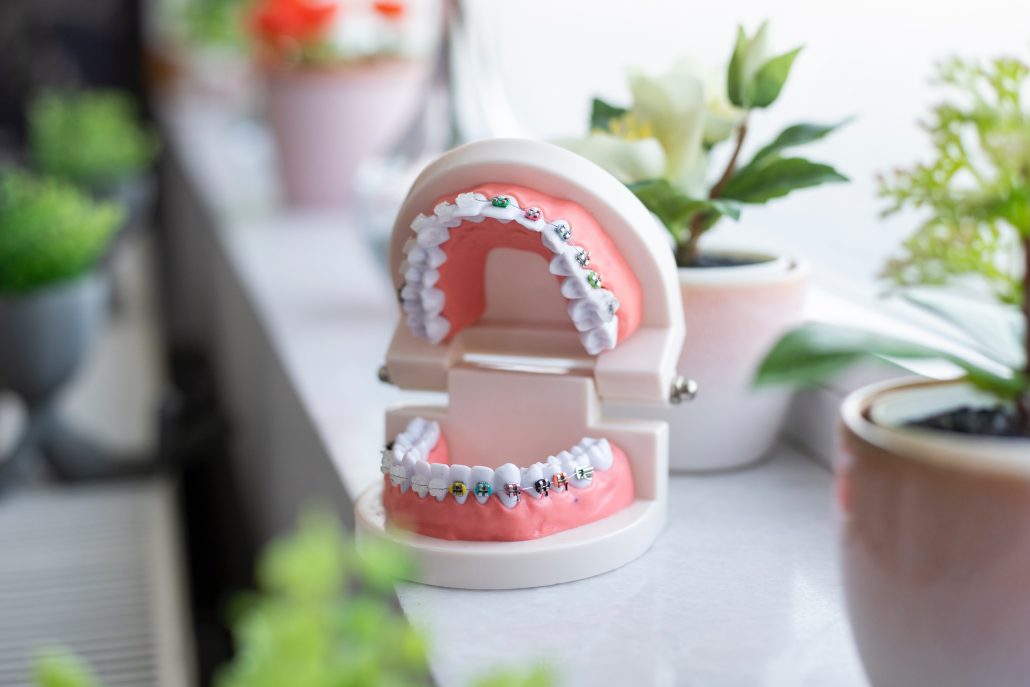
Tips for managing braces pain
Our Top Advice for Managing the Pain Caused by Braces
Braces can cause discomfort and soreness, making you feel like crying. However, there are effective ways to manage the pain and make your orthodontic journey more bearable.
- 1. Use orthodontic wax: Applying orthodontic wax to problem areas can help reduce irritation caused by braces rubbing against your cheeks, lips, or tongue.
- 2. Take over-the-counter pain relievers: Non-prescription painkillers like ibuprofen or paracetamol can provide temporary relief from braces pain. Remember to follow the recommended dosage and consult with your orthodontist if necessary.
- 3. Rinse with saltwater: A saltwater rinse can soothe gum discomfort and reduce inflammation. Mix half a teaspoon of salt in warm water and swish it in your mouth for about 30 seconds.
- 4. Stick to soft foods: Opt for soft foods that require minimal chewing, like mashed potatoes, soup, yogurt, or smoothies. Avoid hard, crunchy, or sticky foods that can worsen the pain.
- 5. Apply a cold compress: If you experience swelling or soreness, gently place a cold compress or an ice pack on the affected area. This can help alleviate the discomfort and reduce inflammation.
Don’t forget to avoid chewing on objects like pens, pencils, or fingernails, as this can intensify the pain and potentially damage your braces. Also, ensure you maintain good oral hygiene by brushing and flossing regularly, as it can help prevent additional discomfort caused by food debris getting stuck in your braces.
To make the most out of your orthodontic treatment and minimize pain, it’s crucial to follow the instructions provided by your orthodontist. Remember that the levels of discomfort vary from person to person, so don’t compare your experience to others’.
Take control of your braces pain and remember that it’s a temporary phase. Soon enough, you’ll be rewarded with a beautiful smile that was worth all the temporary discomfort. Don’t let the pain hold you back from achieving the perfect set of teeth. Embrace the journey and trust the process.
You deserve a smile you can be proud of. Book an appointment with your orthodontist today and take the first step towards a confident and dazzling smile. Don’t let the fear of missing out on a perfect smile stop you from taking action. Start your transformation now!
Embrace the wax, because the only thing worse than braces hurting is not having any at all.
Applying wax to alleviate irritation
To ease irritation from braces, wax can be helpful. Here are 3 points to note:
| – 1. Wax creates a protective layer between braces and soft tissue in your mouth. This reduces friction and pain. |
| – 2. Wax is easy to mold and place on sharp or protruding edges of braces. This stops them from rubbing your cheeks, lips and gums. |
| – 3. Wax is a cushioning barrier, helping minimise the impact when you bite or chew. |
Plus, wax is safe to use and won’t hurt if accidentally swallowed. Follow orthodontist instructions on how to apply and remove it.
Emma is a good example of how wax works. Even though she followed all the care instructions for her braces, she still had discomfort from a rough edge on one bracket. After her dentist suggested wax, Emma found immediate relief. So with this simple solution, she could carry on with her daily activities without braces pain.
Using over-the-counter pain relievers
Acetaminophen and ibuprofen are commonly recommended to manage brace pain. Remember to follow dosage instructions on the packaging for safe use. Consult your orthodontist first to confirm suitability. Be aware of possible side effects such as gastrointestinal issues or allergic reactions. Talk to your orthodontist for personalized recommendations and concerns.
Don’t let braces pain restrict you from a beautiful smile. Get advice from your orthodontist today on the best over-the-counter pain relievers for brace discomfort. Enjoy a comfortable and confident journey towards straighter teeth!
Rinsing with saltwater for gum soreness
Saltwater rinses can reduce inflammation and ease gum soreness. Just mix half a teaspoon of salt with eight ounces of warm water, swish it around your mouth for 30 seconds then spit it out.
Salt has antibacterial properties, so this solution helps cleanse the mouth and avoid infections. Do this two to three times a day or as needed, especially after meals.
Good oral hygiene like gentle brushing and regular flossing can enhance the effects of saltwater rinses. Speak to your orthodontist if you have ongoing pain or other worries.
A friend told me about using saltwater rinses during her orthodontic journey. It gave her momentary relief from the discomfort of her braces. Even though the pain would come back, those few moments of respite made a big difference to her overall health.
What to do if the pain persists or worsens
If your braces cause unbearable pain, take action! Ignoring it can make things worse and prolong your suffering. Here’s what to do if the pain sticks around:
| 1. Assess the situation. |
|---|
| Figure out how bad the pain is: dull ache or sharp? Constant or comes and goes? Knowing the details helps plan the next steps. |
| 2. Contact your orthodontist. |
| If the pain gets worse or is unbearable, get in touch with them. They have the experience to give you the right guidance. They may suggest adjusting the wires or pain relief meds. |
| 3. Follow their recommendations. |
| Maybe wax on any brackets or wires that hurt. Or take meds like ibuprofen or acetaminophen as directed. |
Everyone’s braces experience is different. So if you notice anything strange or are worried about the pain, talk to your orthodontist. Taking action and seeking help quickly will make sure you get the right care and support. Don’t let fear stop you from dealing with your orthodontic pain. Take action now to ease the pain and get closer to a great smile!
Conclusion
Centuries ago, braces were used in Egypt and Greece to fix teeth misalignments. Now, they’re more comfortable and efficient and millions of people use them to get the smile they want. But, the pressure exerted on teeth and gums can be painful. Here are some ways to lessen the discomfort:
- Remember that the pain is only temporary and it’s just a sign that the braces are working. Keeping your mouth clean can help too.
- Apply orthodontic wax to brackets or edges that hurt. This acts as a cushion between the braces and your mouth, reducing friction.
- Gargle with warm saltwater for 30 seconds each meal. This can reduce inflammation and soothe soreness.
- Ibuprofen or paracetamol can also help. However, it’s best to talk to your orthodontist or dentist first.
Frequently Asked Questions
FAQ 1: Why do my braces hurt?
When you first get braces or have them tightened, they can exert pressure on your teeth, gums, and jaw. This pressure is necessary to align your teeth properly, but it can cause discomfort and soreness.
FAQ 2: How long will the pain last?
The initial discomfort after getting braces or having them adjusted typically lasts for a few days to a week. As your mouth gets used to the braces, the pain should gradually subside. If the pain persists or becomes unbearable, it’s important to consult your orthodontist.
FAQ 3: What can I do to relieve the pain?
You can rinse your mouth with warm saltwater to alleviate soreness and reduce inflammation. Over-the-counter pain relievers like ibuprofen can also provide temporary relief. Avoid hard, crunchy, or sticky foods that might further irritate your braces.
FAQ 4: Is it normal for braces to make me want to cry?
Feeling emotional or frustrated due to the discomfort caused by braces is completely normal. Orthodontic treatment can be challenging, both physically and emotionally. Remember that the pain will lessen over time, and you’ll eventually achieve a beautiful smile.
FAQ 5: What should I do if a wire or bracket is causing severe pain?
If a wire or bracket is digging into your gums or causing intense pain, try placing wax over the irritating area to provide temporary relief. Contact your orthodontist as soon as possible to schedule a repair appointment.
FAQ 6: Can I participate in activities or sports while my braces hurt?
Sporting activities can still be pursued with braces, but it’s essential to take precautions to protect your mouth. Consider wearing a mouthguard to prevent injuries to your lips, cheeks, and gums. Consult your orthodontist for specific guidelines and recommendations.
https://onwardsanswering.com/call-answering-service-for-dental-practices
